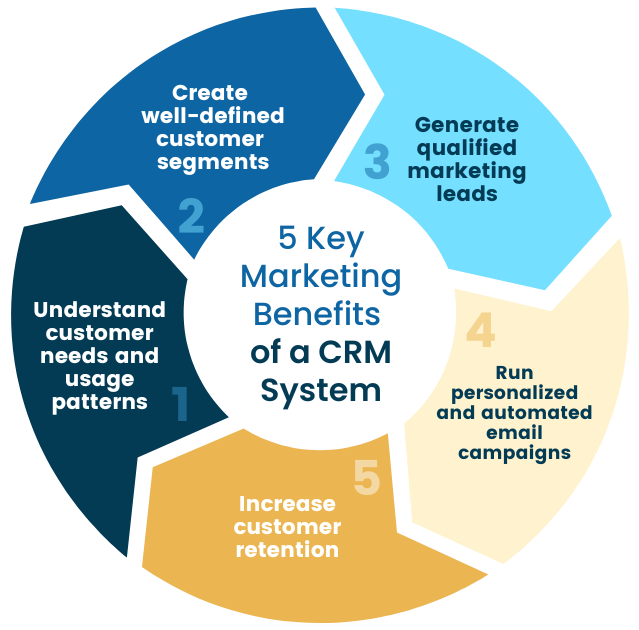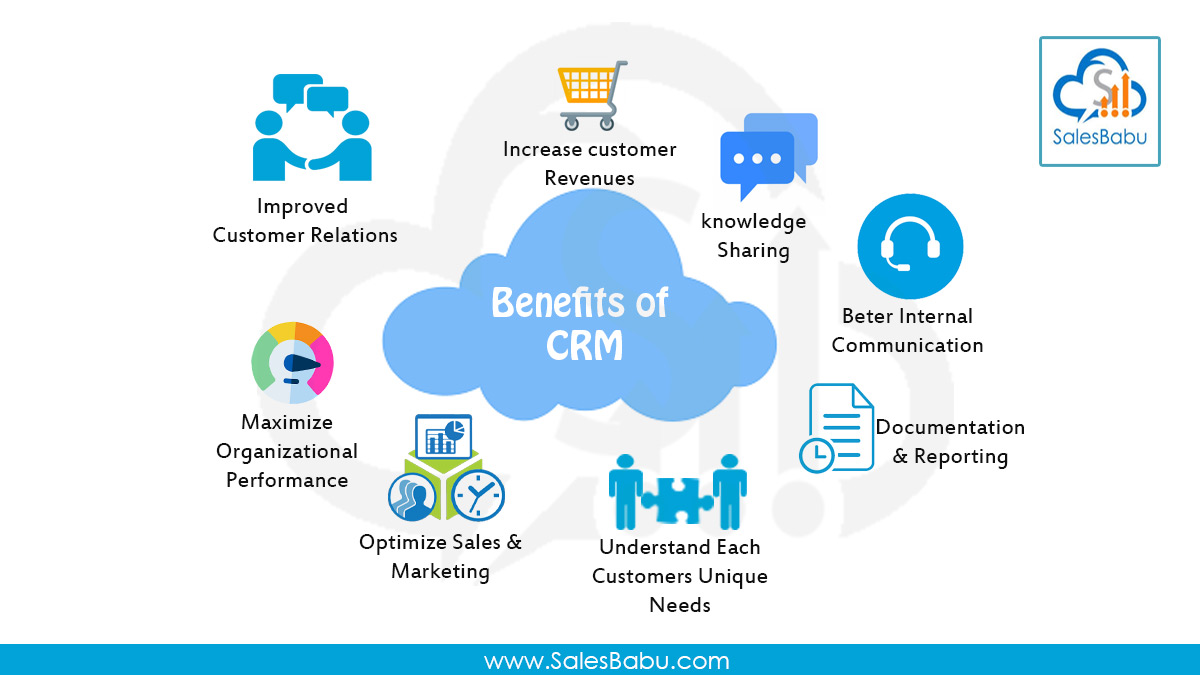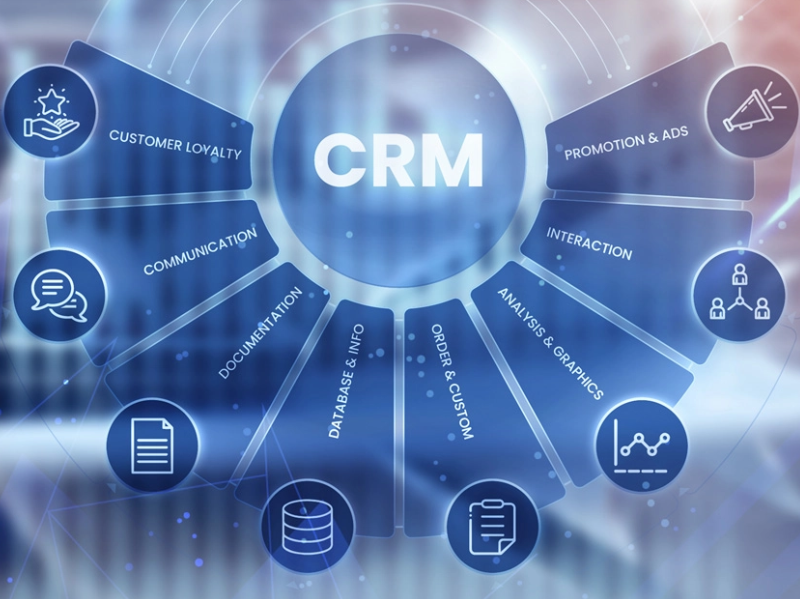In today’s competitive business landscape, the importance of Customer Relationship Management (CRM) cannot be overstated. Effective CRM systems serve as the backbone of successful sales and marketing strategies, providing companies with the tools to manage customer interactions, streamline processes, and gain valuable insights.
By centralizing customer data, CRM enables organizations to build stronger, more personalized relationships, ultimately driving higher conversion rates and customer loyalty.
This article explores how CRM can transform sales and marketing efforts, highlighting its role in enhancing customer engagement, boosting productivity, and achieving sustainable growth in an ever-evolving market.
Why CRM is Essential for Sales and Marketing Success
Customer Relationship Management (CRM) is a critical tool for modern businesses, especially in the realms of sales and marketing. By providing a centralized platform to manage customer interactions, track leads, and analyze customer data, a CRM system can significantly enhance a company’s ability to build strong, lasting relationships with its clients.
This, in turn, can lead to increased customer satisfaction, higher conversion rates, and more effective marketing campaigns. In this section, we will explore the key reasons why CRM is essential for sales and marketing success.
Enhanced Customer Insights
One of the primary benefits of a CRM system is the ability to gain deep insights into customer behavior and preferences. By collecting and analyzing data from various touchpoints, such as website visits, email interactions, and social media engagement, CRM helps businesses understand what their customers want and need.
This data can be used to personalize marketing messages, tailor product offerings, and improve customer service, ultimately leading to higher customer satisfaction and loyalty.
Streamlined Sales Processes
A CRM system can greatly simplify the sales process by automating routine tasks, such as lead tracking, follow-up emails, and pipeline management. This not only reduces the administrative burden on sales teams but also ensures that no potential leads are overlooked.
With real-time access to customer data, sales representatives can quickly identify and prioritize the most promising leads, leading to more efficient and effective sales efforts. Additionally, CRM can provide valuable analytics and reports to help managers make informed decisions and optimize sales strategies.
Improved Marketing Efficiency
CRM systems offer powerful tools for marketing professionals to streamline their campaigns and measure their effectiveness. By integrating with various marketing channels, CRM can help companies create and manage targeted marketing campaigns, track customer responses, and analyze campaign performance.
This data-driven approach enables marketers to refine their strategies, improve customer engagement, and achieve better return on investment (ROI) from their marketing efforts.
| Benefit | Description |
|---|---|
| Enhanced Customer Insights | Gaining deep insights into customer behavior and preferences through data analysis. |
| Streamlined Sales Processes | Automating routine tasks and improving lead management to enhance sales efficiency. |
| Improved Marketing Efficiency | Streamlining marketing campaigns and measuring their effectiveness for better ROI. |
Why is CRM important for marketing?

CRM is crucial for marketing because it helps businesses manage and analyze customer interactions and data throughout the customer lifecycle. By leveraging CRM systems, companies can enhance customer relationships, improve customer retention, and drive sales growth.
CRM tools provide insights into customer behavior and preferences, enabling marketers to create targeted and personalized marketing campaigns. This leads to higher engagement rates, increased customer satisfaction, and ultimately, better business outcomes.
1. Enhancing Customer Personalization
CRM systems allow marketers to gather and analyze vast amounts of customer data, including purchase history, browsing behavior, and demographic information. This data is invaluable for creating personalized marketing campaigns that resonate with individual customers.
Personalization can lead to higher conversion rates and better customer loyalty. For example:
- Segmenting customers based on their purchase history to send targeted promotions.
- Using customer data to tailor email marketing content to specific interests and preferences.
- Creating personalized landing pages and website experiences based on user behavior.
2. Improving Customer Retention and Loyalty
Customer retention is often more cost-effective than acquiring new customers. CRM helps in building long-term relationships by providing a comprehensive view of each customer’s interactions with the company. This allows marketers to identify and address issues before they become major concerns.
Additionally, CRM can help in creating loyalty programs and reward systems that keep customers engaged and coming back. For instance:
- Tracking customer interactions to identify at-risk customers and intervene proactively.
- Offering personalized discounts and rewards based on customer value and loyalty.
- Using CRM data to send personalized thank-you messages and follow-ups after purchases.
3. Optimizing Marketing Campaigns
CRM provides marketers with the tools to track the effectiveness of their campaigns in real-time. By analyzing campaign performance, marketers can make data-driven decisions to optimize future campaigns.
This includes A/B testing, tracking conversion rates, and understanding which channels are most effective for reaching target audiences. Some specific ways CRM can optimize marketing campaigns include:
- Conducting A/B testing on email subject lines and content to identify the most effective variations.
- Analyzing social media engagement to determine which platforms and content types perform best.
- Using CRM data to refine targeting criteria for paid advertising campaigns, ensuring that ads reach the most relevant audience.
How does CRM help with sales?
A CRM (Customer Relationship Management) system can significantly enhance sales efforts by providing a centralized platform to manage customer interactions, streamline processes, and improve overall efficiency. Here’s how CRM helps with sales:
1. Enhanced Customer Insights
A CRM system collects and organizes customer data from various sources, such as emails, social media, and sales calls. This aggregated data enables sales teams to gain a comprehensive understanding of each customer’s preferences, buying patterns, and communication history.
By having access to this information, sales representatives can tailor their approach to better meet the needs of individual customers, leading to more personalized and effective interactions.
- Customer profiles: Detailed records of customer interactions and preferences.
- Behavioral analytics: Insights into customer behavior and purchase history.
- Segmentation: Grouping customers based on common characteristics for targeted marketing.
2. Improved Sales Pipeline Management
CRM systems provide tools to track and manage the sales pipeline from lead generation to closing deals. This includes features like lead scoring, opportunity tracking, and forecasting.
Sales managers can monitor the progress of each deal, identify bottlenecks, and take proactive measures to keep the pipeline flowing smoothly. This results in better resource allocation and higher conversion rates.
- Lead scoring: Assigning values to leads based on their likelihood to convert.
- Opportunity tracking: Monitoring the status and progress of sales opportunities.
- Forecasting: Predicting future sales based on historical data and current pipeline status.
3. Increased Team Collaboration and Communication
CRM platforms facilitate better collaboration among sales teams by centralizing communication and documentation. Team members can share notes, files, and updates in real-time, ensuring everyone is on the same page.
This reduces miscommunication and enhances the efficiency of sales processes. Additionally, CRM systems often include features for task management and workflow automation, further streamlining team activities.
- Centralized communication: A single platform for all sales-related conversations.
- Task management: Assigning and tracking tasks to ensure timely follow-ups.
- Workflow automation: Automating repetitive tasks to save time and reduce errors.
What are three benefits of using a CRM system?

Three benefits of using a CRM system include enhanced customer relationships, improved operational efficiency, and better data insights. These advantages collectively contribute to the overall success and growth of a business.
Enhanced Customer Relationships
A CRM system helps in building and maintaining strong relationships with customers. By centralizing customer information, businesses can access detailed histories of interactions, preferences, and past purchases. This allows for more personalized and targeted communication.
Here are some specific ways CRM systems enhance customer relationships:
- Personalized interactions: CRM systems allow businesses to tailor their communications, offers, and services to meet individual customer needs and preferences.
- Consistent service: With a centralized database, all customer interactions are logged, ensuring that every customer receives consistent and high-quality service regardless of the touchpoint.
- Proactive engagement: CRM systems can trigger automated responses and reminders, enabling businesses to engage proactively with customers through timely follow-ups and personalized messages.
Improved Operational Efficiency
CRM systems streamline and automate many business processes, leading to improved operational efficiency. This not only saves time and resources but also reduces the likelihood of errors.
Here’s how CRM systems enhance operational efficiency:
- Automation of routine tasks: CRM systems can automate tasks such as data entry, follow-up emails, and appointment scheduling, freeing up employees to focus on more strategic activities.
- Centralized data management: All customer data is stored in one place, making it easy to access and update information, reducing redundancy, and improving data accuracy.
- Process optimization: CRM systems provide insights into business processes, enabling companies to identify and address inefficiencies, thereby streamlining operations.
Better Data Insights
One of the most significant benefits of a CRM system is the ability to gather and analyze vast amounts of customer data. This data provides valuable insights that can drive informed decision-making.
Here’s how CRM systems improve data insights:
- Comprehensive customer profiles: CRM systems collect and consolidate data from various sources, creating comprehensive customer profiles that include demographics, purchase history, and behavior patterns.
- Real-time analytics: CRM systems provide real-time reports and dashboards, enabling businesses to monitor key metrics and track performance against goals.
- Predictive analytics: Advanced CRM systems use machine learning and AI to predict customer behavior, helping businesses anticipate needs and preferences, and make proactive decisions.
What is CRM and identify its significance to the success of a company?
CRM stands for Customer Relationship Management, a strategy and technology that helps businesses manage and analyze their interactions with customers, from initial contact through the entire customer lifecycle.
The primary goal of CRM is to improve business relationships by enhancing customer satisfaction, fostering loyalty, and ultimately driving sales growth. By centralizing customer data, CRM systems provide a unified view of customer interactions, which enables companies to make informed decisions and personalize their approach.
The Role of CRM in Enhancing Customer Engagement
CRM plays a crucial role in enhancing customer engagement by providing tools and insights that help businesses better understand and respond to customer needs. These systems collect and analyze data from various touchpoints, such as emails, phone calls, and social media interactions, to create comprehensive customer profiles.
This information allows companies to:
- Personalize communications and marketing efforts to meet individual customer preferences and behaviors.
- Identify and address customer issues more efficiently, leading to higher satisfaction and loyalty.
- Segment customers into specific groups for targeted marketing campaigns, increasing the effectiveness of promotional activities.
How CRM Contributes to Sales and Revenue Growth
One of the most significant benefits of CRM is its impact on sales and revenue growth. By streamlining sales processes and providing real-time data, CRM systems help sales teams:
- Track sales activities and performance metrics, enabling more accurate forecasting and goal setting.
- Identify potential upsell and cross-sell opportunities, maximizing the value of each customer interaction.
- Collaborate more effectively with other departments, such as marketing and customer service, to create a cohesive customer experience.
The Importance of CRM in Data-Driven Decision Making
CRM systems facilitate data-driven decision making by providing actionable insights and analytics. This is crucial for companies looking to stay competitive in a data-rich environment. Key ways CRM supports data-driven decision making include:
- Providing real-time reports and dashboards that highlight key performance indicators (KPIs) and trends.
- Enabling A/B testing and other analytical methods to optimize marketing and sales strategies.
- Identifying customer segments and behaviors that can inform product development and market expansion efforts.
Frequently Asked Questions
What is CRM and How Does it Support Sales and Marketing?
CRM, or Customer Relationship Management, is a system that helps businesses manage their interactions with current and potential customers. It supports sales and marketing by centralizing customer data, enabling targeted marketing campaigns, and providing insights to enhance customer engagement and satisfaction, ultimately driving sales growth.
How Does CRM Improve Customer Engagement?
CRM improves customer engagement by providing a comprehensive view of customer interactions and preferences. This data allows businesses to personalize communications, offer relevant products and services, and respond quickly to customer needs. By fostering stronger relationships, CRM helps increase customer loyalty and retention, leading to higher lifetime value.
Can CRM Help in Identifying Sales Opportunities?
Yes, CRM can help identify sales opportunities by tracking customer interactions, purchase history, and behavioral patterns. Advanced analytics and reporting features in CRM systems can highlight potential upsell and cross-sell opportunities, enabling sales teams to target customers more effectively and close deals more efficiently.
What Are the Key Benefits of Using CRM for Marketing Teams?
The key benefits of using CRM for marketing teams include improved data accuracy, better segmentation, and enhanced campaign tracking. CRM allows marketers to create targeted campaigns, measure their impact, and refine strategies based on real-time data. This leads to more effective marketing efforts, higher ROI, and a better return on marketing investments.


